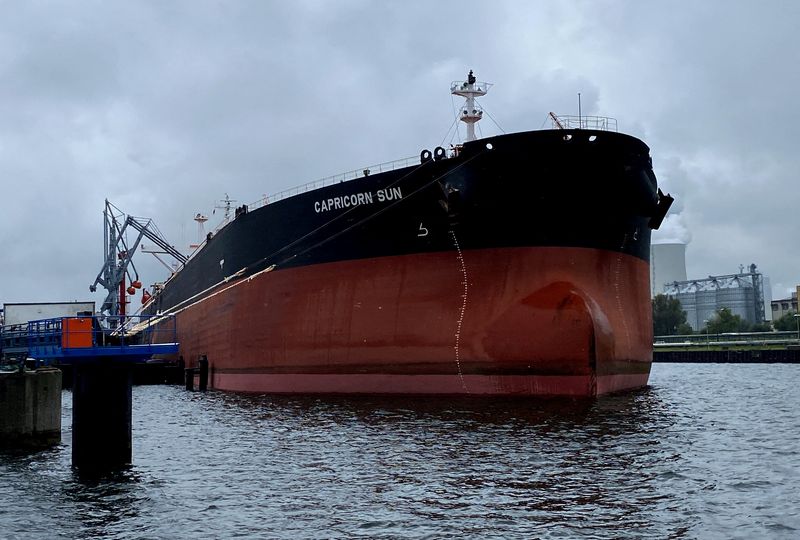By Andrea Shalal
(Reuters) -The United States remains confident that the Group of Seven's price cap on Russian oil is working to squeeze Moscow's revenues and stabilize energy markets despite a recent upturn in prices, a senior U.S. Treasury official said on Thursday.
Acting Assistant Secretary for Economic Policy Eric Van Nostrand hailed the price cap as a successful part of the multilateral sanctions regime imposed on Russia over its invasion of Ukraine and said Washington and its partners were working to thwart any evasion.
"Our approach has struck at the heart of the Kremlin’s most important cash cow. Before the war, oil revenues constituted about a third of the total Russian budget, but in 2023 that number has fallen to just 25%," he said in remarks prepared for a London conference.
The G7, the European Union and Australia imposed the $60 per barrel cap last December on sea-borne exports of Russian crude in retaliation for Russia’s war on Ukraine. It bans Western companies from providing services such as transportation, insurance and financing for the oil sold above the cap.
Van Nostrand said Russian data showed federal government oil revenues were nearly 50% lower in the first half of 2023 than a year earlier, and Russian oil was trading at "a significant discount" to Brent oil.
Russian officials had also complained about the impact of the price cap, he said, and the Kremlin has been forced to consider raising taxes on oil exporters to boost revenues, which could weaken the long-term outlook for its oil industry.
Van Nostrand said the average reported price for Russian Urals had hovered around $60, the level of the price cap, despite recent price increases as well as widespread expectations that the price would rise in the second half of 2023.
Russia's Finance Ministry this week said Urals crude oil blend traded at $64.37 per barrel on average in July, up from $55.28 per barrel in June.
Russia will cut exports by 300,000 barrels per day (bpd) in September, Deputy Prime Minister Alexander Novak said on Thursday. Russia, the world's biggest oil exporter after Saudi Arabia, had already pledged to cut oil output by 500,000 bpd, or about 5%, from March until year-end.
Global oil benchmark Brent jumped about 2% to nearly $85 a barrel on Thursday after Saudi Arabia extended its voluntary one million bpd output cut by another month to the end of September.
Van Nostrand said the cap was continuing to limit Russian revenues, while giving "non-coalition buyers additional leverage to negotiate prices down."
Any investments the Russian government made into the so-called shadow fleet used to transport oil, or into its own insurance companies in order to sell above the price cap, was draining funds available to support the war in Ukraine, he said.
Russian oil traded outside of the G7 nexus was still sold at a sizeable discount to Brent oil, and shipping capacity limited how much business Russia could do outside the G7, he added.
"Lower-income countries have been beneficiaries of this stability as they continue to import discounted Russian oil that the G7 no longer takes or benefit from generally lower global oil prices," Van Nostrand said.

Still, Van Nostrand said Washington understood that markets could change rapidly, and Russia would keep trying to evade the price cap.
"We remain vigilant in monitoring oil markets and the whole coalition remains focused on enforcing our sanctions," he said.